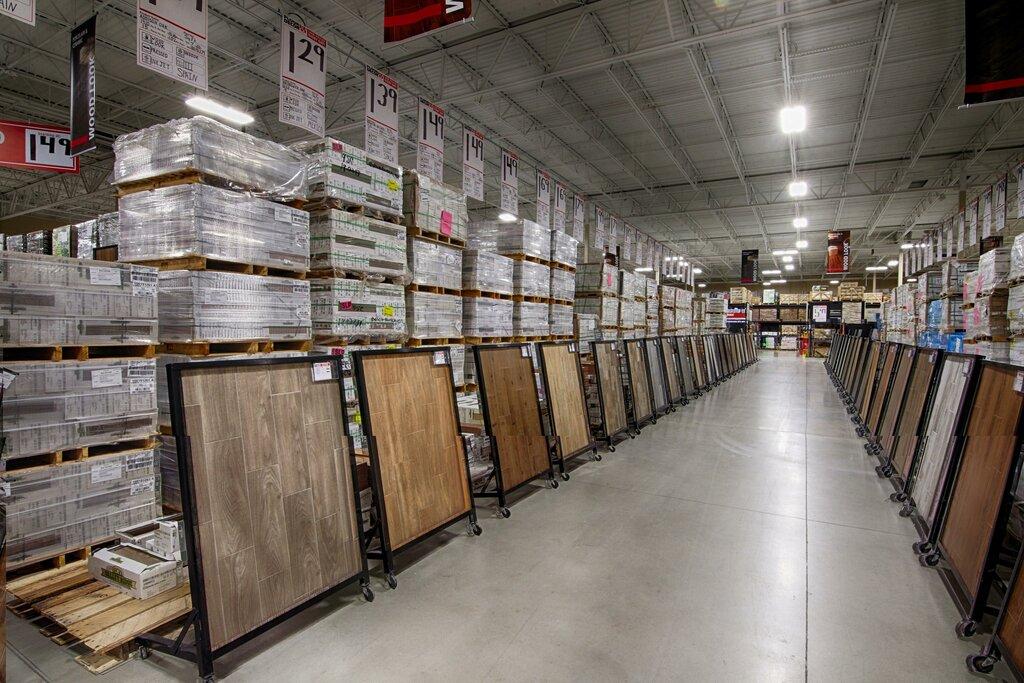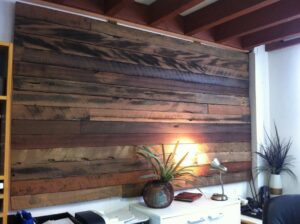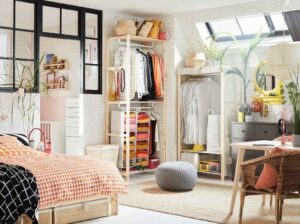08 Tips to Choose the Best Timber Flooring for Your Shop
Your shop requires a proper selection of timber flooring materials. Your business space becomes affected in form, texture, and structural longevity. Selecting the perfect choice among numerous possibilities proves to be a complicated task. Your selection requires evaluation of essential wood details, surface type, cost, and upkeep needs. An ideal timber selection for your shop will both boost its visual attractiveness and provide enduring durability.
Businesses find timber flooring attractive while being powerful and simple to maintain because of its cleaning abilities. The market offers various timber flooring products which do not share identical attributes. The floor choices differ between commercial zones and classy environments. The following straightforward recommendations will assist you in selecting the most suitable timber flooring for your retail business.
Understand Your Shop’s Flooring Needs
The flooring requirements differ from shop to shop. You should evaluate your business objectives before selecting timber flooring for your shop. A bustling retail establishment requires flooring materials that are durable as well as strong. A boutique plus a café typically requires flooring with a blend of warm aesthetics and style. Solving your needs for flooring demands will determine which type of timber becomes your choice. Traffic is an important factor.
High-traffic shops require durable timber since it must endure regular wear and tear. Oak together with teak make suitable options for flooring. Pine Timber serves stores better when they get fewer customers than hardwood flooring does. Also, consider moisture levels. The selection of timber should include resistance to moisture in conjunction with humid environments to guarantee it remains undamaged.
Maintenance is another key point. Consistent polishing together with care requirements becomes essential for specific types of timber flooring. A touch-friendly floor design can be achieved through pre-finished or engineered timber materials. This type of flooring needs minimal care throughout its extended longevity period. Every shop needs flooring that aligns with its present operational demands and future requirements.
Select a Durable Timber Species
When deciding on your shop flooring you must select hardy timber species. Timber exists in variations that differ in strength level. The wood species oak along with teak and maple display exceptional strength properties. Such flooring materials excel at handling sustained human weight while having longevity. The busy traffic conditions of your shop make these timber species suitable choices.
Pine along with fir demonstrate decreased durability in comparison with other wood species. The surface of hardwood suffers from both scratches and dents quite easily. The low traffic levels in your shop will allow softwood to work as an appropriate flooring solution. A long-term durable option selects hardwood species instead of softwood species.
Each timber species shows individual reactions to environmental moisture along with temperature changes. Various wood materials display different amounts of size alteration in response to changes in climate. The choice of teak or ironbark wood species is best suited for shops located in humid areas. These materials demonstrate strong resistance against water while keeping their shape intact under all weather conditions.
Engineered timber stands as a choice because it shows stability during weather fluctuations. Timber selection determines the lifetime duration of your flooring material. Because hardwoods have better durability they both cost more and require less maintenance throughout their lifespan. Before making a purchase check the durability rating provided by the timber manufacturer. The appearance of your shop store will stay beautiful for numerous years due to the use of durable wood.
Ensure Easy Maintenance and Cleaning
Timber floors that maintain themselves easily help shoppers save time for other matters. Some types of wood need regular care, while others stay clean with minimal work. Pick a floor material that will sustain the heavy traffic of your business since frequent maintenance and repairs are not required. Engineered timber flooring with its protective layer provides excellent options as pre-finished products. Proper steps will enable you to easily maintain timber floors.
Regular dusting and vacuuming clean away accumulated dirt from the floor surface. Wipe the surface by using a mild cleaner on a damp mop. Excessive water usage should be avoided since it results in wood damage. Entrance mats serve as a protection system against both dirt and moisture that tries to enter the floor area.
Shops often experience a frequent occurrence of surface scratches and stains. The use of furniture pads placed beneath tables and chairs prevents the formation of scratches and stains. To strengthen highly frequented areas install rugs and carpets for added defense. Wood filler along with polish provides the solution for fixing any scratches that appear on the floor. Careful inspections for floor damage will help maintain its proper condition.
Timber flooring will endure longer through correct maintenance practices. The finish you select should combat signs of moisture damage and staining. Your shop appearance will benefit from a maintained floor which also provides comfort for your customers. Permanently installing resilient floor coverings will prevent upcoming expenses related to maintenance activities.
Look for Eco-Friendly and Sustainable Options
Eco-friendly timber flooring selection creates advantages for the environment. It takes several years for trees to mature therefore it is essential to choose environmentally sustainable wood. Select wood products that are part of responsible forest management practices. The Forest Stewardship Council FSC and Programme for the Endorsement of Forest Certification PEFC create certified timber standards protecting forest integrity.
Using reclaimed wood stands out as an excellent alternative for eco-friendly floorings. The wood stem originates from either ancient buildings or past materials’ reuse. Reclaimed wood acts as a waste reduction tool while creating an exclusive shop appearance. It stands out because of its robustness and longevity which makes it an intelligent selection. Timber is a sustainable substitute for bamboo. Its growth rate is quick while its strength level matches hardwood products.
The durable character of bamboo floors combines with their stylish appearance while remaining friendly to the environment. This material stands up to moisture thus proving to be suitable for shops located in humid areas. The selection of flooring finish plays an important role in its overall quality. Finishes that contain harmful chemicals will release toxic substances into the surrounding air. Water-based and natural oil finishes represent a better option for flooring than other alternatives.
Bamboo flooring together with natural oil finishes protects both environmental systems and your customers while working in your shop. Eco-friendly floor materials deliver simultaneous advantages for nature along with business benefits. The selection of sustainable timber allows your shop to maintain its appealing exterior with concurrent preservation of the environment.
Work with a Professional for Proper Installation
Professionals will deliver the best results when it comes to timber flooring installation. Experienced professionals use their special capabilities alongside their professional instruments to perform high-quality work. Inadequate installation will eventually cause space between planks and unsuitable floor height which ultimately causes permanent damage. A professional installer performs correct installation procedures that increase floor longevity.
Preparation is key before installation. The materials must be free from moisture and fixed on surfaces that are flat with no wetness. A qualified worker will examine the surface for wetness along with other issues. Warping or cracking of timber can occur if the preparation of the subfloor is poor. Proper installation methods protect a floor from the development of future problems that could require additional costs.
The installation processes for timber floors depend specifically on timber types. A floor installation system may consist of nailing gluing or floating as three separate options. Professionals will determine the most appropriate installation technique for your store floor. The installer arranges the floor planks in a neat and organized pattern to achieve an elegant and streamlined appearance.
A properly installed shop floor enhances both the appearance and longevity of your premises. The installation method reduces both maintenance requirements and the expenses needed for floor repairs. A professional flooring expert delivers time-saving installations of long-lasting attractive floors that maintain their strength for multiple years.
Attractive Flooring Choices for Clothing Outlets
Retailers need to select appropriate timber flooring materials for their clothing outlets. A suitable timber flooring should be fashionable and resilient while also following the shop’s design elements. A clothing outlet will get a contemporary feel from light-colored timber installations. An elegant and warm appearance emerges from darker tone options. The proper floor choice improves customer shopping satisfaction and attracts more store visitors.
The customer volume at clothing stores remains heavy. Strong hardwoods like oak, teak, or maple work well. The materials exhibit high resistance to wearing elements which leads to extended product life. Engineered timber makes an economical choice for flooring when buyers look for an affordable solution. Engineered timber maintains the appearance of natural wood surfaces without needing much care.
The floor choice needs to match your offered products. Shops that focus on summer ladies’ outfits can achieve a refreshing atmosphere through the use of light wood tones. Apart from being sophisticated a matte or satin finish diminishes dazzling light effects in store environments. The essential factor for maintaining facilities is that maintenance should be easy.
The flooring in clothing stores requires both cleanliness and the absence of dust. A properly finished floor of wood maintains easy cleanability. The selection of suitable timber floors assists in developing warm areas that will maintain customer engagement in prolonged shopping time.
Set a Budget Without Compromising on Quality
Make certain to establish a spending limit when buying timber flooring. You should seek premium materials at costs that avoid unnecessary expenditure. The first step requires determining your budget limits. Compare different timber types and their prices. Certain timber products have higher price points than others in the market.
Engineering processes have created a cost-effective material for timber products. The material presents a similar wood appearance while keeping the price lower. If you need monetary savings for your flooring you should consider laminate products. Assess that the selected material will lead to long-lasting durability. Making a wise investment in high-quality floors will prevent future expenses for maintenance and replacement.
The total financial costs for installation need to be included within the budget. Expenses with hired professionals tend to be higher yet their work delivers safe installation results. Improper flooring installation from the beginning will result in additional expenses during later stages. Selecting a dependable installer will result in exceptional outcomes.
Check if suppliers offer discounts together with their deals and promotions. The act of buying large quantities will reduce your expenses. Always maintain superior quality rather than settling for cost reduction in purchases. Investing in strong timber flooring becomes an enduring financial choice for a property. Carefully constructed budgets enable you to acquire superior shop flooring at reasonable costs.
Check the Warranty and Longevity of the Flooring
People need to examine the warranty of their timber flooring before purchase. A proper warranty acts as protection for your initial investment. The warranty protects against both structural defects and damage to the surface as well as natural deterioration from usage. Warranty details must be examined before a purchase decision.
The length of a flooring warranty depends on the flooring type selected by customers. Solid hardwood timber usually comes with more extended warranty coverage than engineered wood does. The length of warranties for timber flooring spans from ten years to thirty years but some may be shorter than ten years. Purchase floors that come with extended warranty guarantees for lasting usage.
Timber quality and proper maintenance define how long wood-based flooring lasts. Hardwoods composed of oak together with teak and maple wood products endure for many decades. Engineered wood remains durable yet its lifespan might be shorter than other wood flooring options.
Regular maintenance activities including cleaning along with keeping the floor dry will increase its lifespan. A warranty that provides good protection brings reassurance to consumers. The warranty system establishes a level of quality assurance for the products manufactured by the manufacturer. For any problems that occur you can request both maintenance repairs and replacements.
Conclusion
Businesses that choose the correct timber floorings benefit from an enhanced look together with better durability and easier maintenance. The combination of high-quality materials with an appropriate budget and sustainable practices will produce the optimum outcome. Choose durable flooring materials that improve the customer’s perspective. Ready to upgrade your shop? Your search for top-notch timber solutions should begin now to achieve a stylish space with an extended life span.




